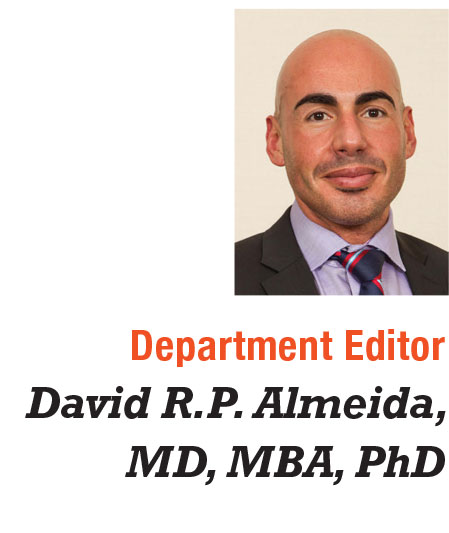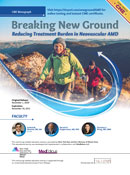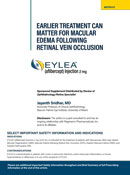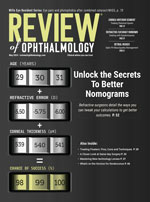 |
|
Bios Dr. Almeida is a vitreoretinal surgeon at Erie Retinal Surgery in Erie, Pa. DISCLOSURE: Dr. Almeida reports no relevant financial relationships. Twitter: @davidalmeidamd Email: [email protected] |
From their inception, online resources promised the opportunity to improve patient communication, unencumbered by the lackluster effectiveness of telephone and physical mail. Social media, as one of the cornerstones of modern digital media, can reach patients instantaneously beyond the limits of geography. Although online platforms have their own drawbacks, some of which we’ve discussed previously, they nonetheless provide an immediate, facile means for targeted patient messaging to effect health promotion.
Role of agency and advocacy
Before we jump into online health promotion strategies, it’s necessary to understand how health promotion can be achieved. Patient empowerment—agency and the ability to produce a particular effect—is a requisite. That is, patients must have the credible belief that they possess the necessary agency and ability to impact their respective outcomes.
As retina specialists, ophthalmologists and physicians at large, patient advocacy is our most effective route to foster patient agency. Clear communication and trustworthy rapport aid our advocacy efforts, whereas inconsistent messaging and pseudo-scientific inaction can irreparably harm it.
Let’s use the COVID-19 vaccination as an example. Approximately 31 percent of U.S. adults are hesitant, reluctant or distrusting of the vaccines.1 But widespread vaccination is critical to achieve herd immunity. Patient advocacy that’s centered on the benefits of vaccination, honest dialogue on patient concerns regarding risks and the tactile removal of widespread disinformation are essential for energetic patient agency.2
Social media strategies
Continuing with our example, research shows vaccine-promoting organizations have faced obstacles using social media to reach audiences and measure impact. This has caused numerous missed opportunities to counter misinformation and connect with populations low in vaccine confidence.3
So, how do we as retina specialists improve our impact on patient health promotion via social media? On a larger scale, how can we as physicians build trust in vaccine safety and efficacy?
In answering these questions, it becomes salient that social media can improve outcomes by tailoring messages to specific groups, avoiding the repetition of false claims, adapting messaging in real-time as circumstances change, clearly responding to adverse events and identifying trusted messengers.4
Physicians have the opportunity to embrace the participatory nature of online platforms and improve patient reach—best done with credible content—to enhance engagement, education and effect.
Although medicine continues to be a slow adopter of online engagement, patient health promotion is an area where committing to the participatory nature of social media is critical to not losing our patient audience. If we’re serious about our claims to positively impact health outcomes, then we must also be serious of our need to elevate patient agency with our advocacy efforts. RS
REFERENCES
1. Hamel L, Kirzinger A, Lopes L, Kearney A, Sparks G, Brodie M. KFF COVID-19 Vaccine Monitor: January 2021. Kaiser Family Foundation. Accessed May 31, 2021. Available at https://www.kff.org/report-section/kffcovid-19-vaccine-monitor-january-2021-vaccine-hesitancy/.
2. COVID-19 Vaccination Communication Toolkit. Centers for Disease Control and Prevention. Updated December 21, 2020. Accessed May 31, 2021. Available at: https://www.cdc.gov/vaccines/covid-19/health-systemscommunication-toolkit.html.
3. Steffens MS, Dunn AG, Leask J, Wiley KE. Using social media for vaccination promotion: Practices and challenges. Digital Health. Published online November 3, 2020. doi:10.1177/2055207620970785.
4. Berg S. 8 communication strategies to boost COVID-19 vaccine acceptance. American Medical Association. Posted March 18, 2021. Accessed on May 31, 2021. Available at: https://www.ama-assn.org/ delivering-care/public-health/8-communication-strategies-boost-covid-19- vaccine-acceptance.



